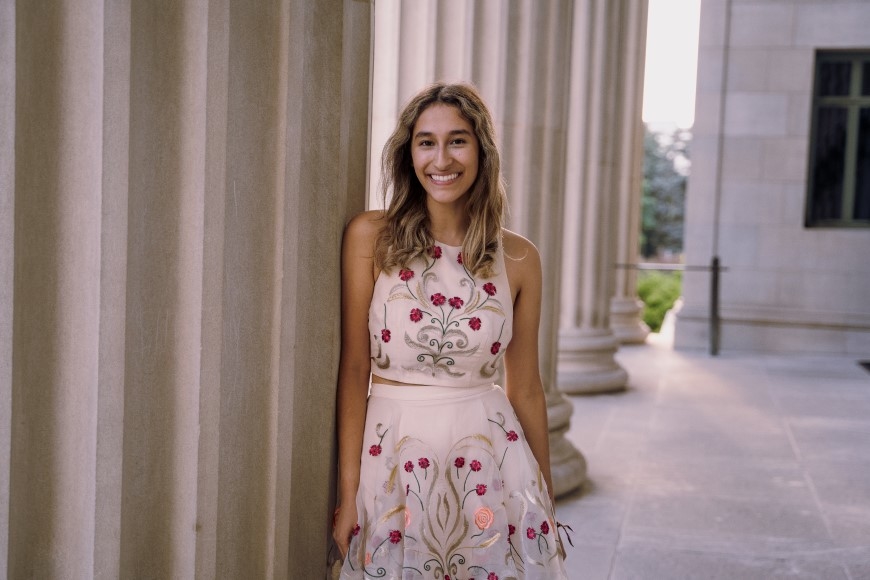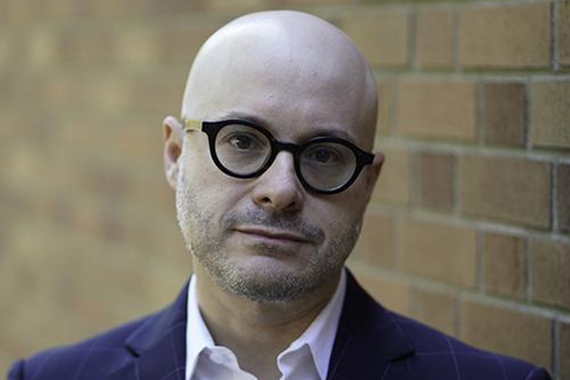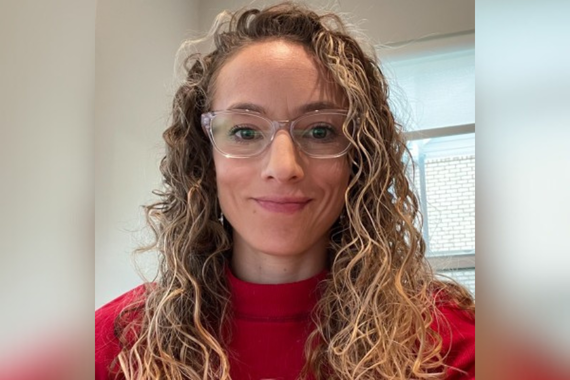Meet Maria Zavala Garcia
Political science and biology. Many students might see these two disciplines as having nothing in common, but not Maria Zavala Garcia, University of Minnesota undergraduate majoring in political science and minoring in biology.
“I value that I have been able to develop an interdisciplinary perspective on issues that cross from political science into biology,” Garcia explains. “For example, it has been insightful having the ability to explain the science behind vaccines but also understand the phenomenon of political polarization around vaccination. I don’t consider the two fields to have as much distance between them as one might initially think.”
APSA Diversity Fellowship Program
This sort of critical thinking, interdisciplinary approach, along with support from faculty members has prepared Garcia to pursue a PhD in political science after graduation. After a competitive process, she has also been named a 2022-2023 American Political Science Association Diversity Fellowship Program (DFP) Fellow, a prestigious accomplishment. The DFP was established to increase the number of underrepresented scholars in the political science discipline and has contributed to the completion of doctoral political science programs for over 100 individuals.
“Being named a DFP fellow validated the confidence I had in pursuing a doctorate and in my qualifications to pursue such work,” Garcia says. “I am a first-generation student and feel that this award is the culmination of support from the many communities I am fortunate enough to be part of.”
Research and Connections in the Classroom
Professors in the Department of Political Science introduced Garcia to the DFP and have worked closely with her on course work and outside research. As a TRIO McNair Scholar, Garcia worked with Assistant Professor Cosette Creamer researching the Inter-American Court of Human Rights. “Her project allowed me to engage in interdisciplinary research for the first time as we explored questions at the intersections between political science, human rights, and the law. I am grateful to both the McNair team and Dr. Creamer for this opportunity,” Garcia declares.
Garcia first heard about the Diversity Fellowship Program while working as a research assistant with Professor Tanisha Fazal. “Maria’s thoughtful participation in class led me to hire her as a member of my research team,” Professor Fazal explains. “Her excellent contributions have advanced and elevated the project.” It was natural for Professor Fazal to share the DFP opportunity with such a capable student.
Garcia also received encouragement from Professor Robert Nichols. Two courses, Comparative Political Economy with Professor John Freeman and Russian Politics with Professor Kathleen Collins, particularly stood out for Garcia.
“My class with Dr. Freeman specifically enabled my intellectual curiosity and encouraged me to synthesize different concepts across political science subfields,” Garcia reports. “And Russian Politics grounded me in a historical foundation of state violence that influenced the evolution of my research interests.” The support of these professors, and others, have been invaluable in the process of applying to graduate school.
Professor Freeman recognizes Garcia’s passion and ability. This was evident in the classroom where Garcia asked important questions and engaged her peers in debates and discussions. Through her dedication to interdisciplinary work, Garcia has developed a “remarkable skill-set” doing research in human rights, international relations, and with the neurology department.
New Opportunities
Another highlight of her undergraduate career was participating in the Dean’s Scholars program in the College of Biological Sciences and serving as a peer mentor. “It was meaningful for me to facilitate an environment for my mentees that helped them find community and make campus feel smaller in their first year of college,” Garcia says.
The start of the COVID-19 pandemic made it difficult to maintain motivation for coursework, even with someone as driven as Garcia. But over the summer of 2020 she was able to recover and adjust to the new reality. This new reality also led to new opportunities. Having time to “reflect on my aspirations largely influenced my decision to switch from majoring in the natural sciences to the social sciences.” In addition, Garcia was able to conduct research for the McNair program remotely while she visited family in Mexico. “The pandemic has put many things into perspective for me,” Garcia reveals.
Through the connections made with faculty members, the community she has built as a mentor, and the diligence she brought to her research Garcia has prepared herself to succeed in whichever PhD program she chooses to enter—she is considering multiple offers.
“There is not enough space for the number of people I would like to thank here,” Garcia says, referring to her time at the University of Minnesota. “There are faculty and past and current advisors of mine that have seen past my identity as a student and taken the time to connect with me as a person. I am so grateful, and I am so proud.”
Garcia has achieved great things as an undergraduate at the University of Minnesota and is prepared to do great things in the future. “Maria Zavala Garcia is a bright and accomplished young scholar and researcher,” Professor Nichols says. “I look forward to hearing more about her accomplishments in the future.”


